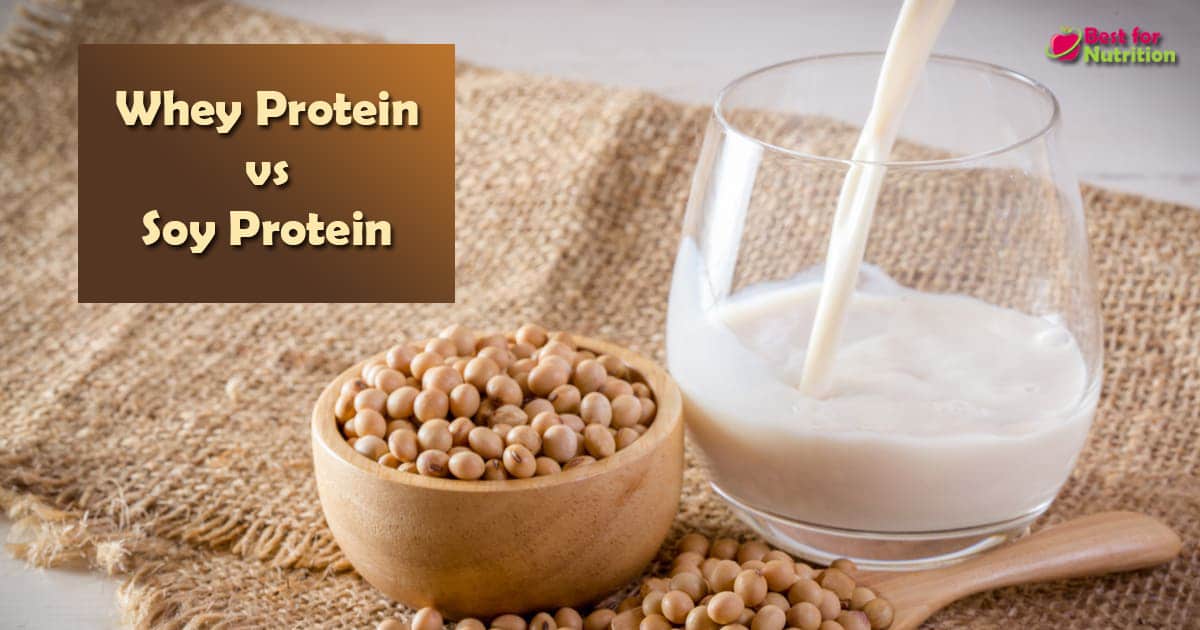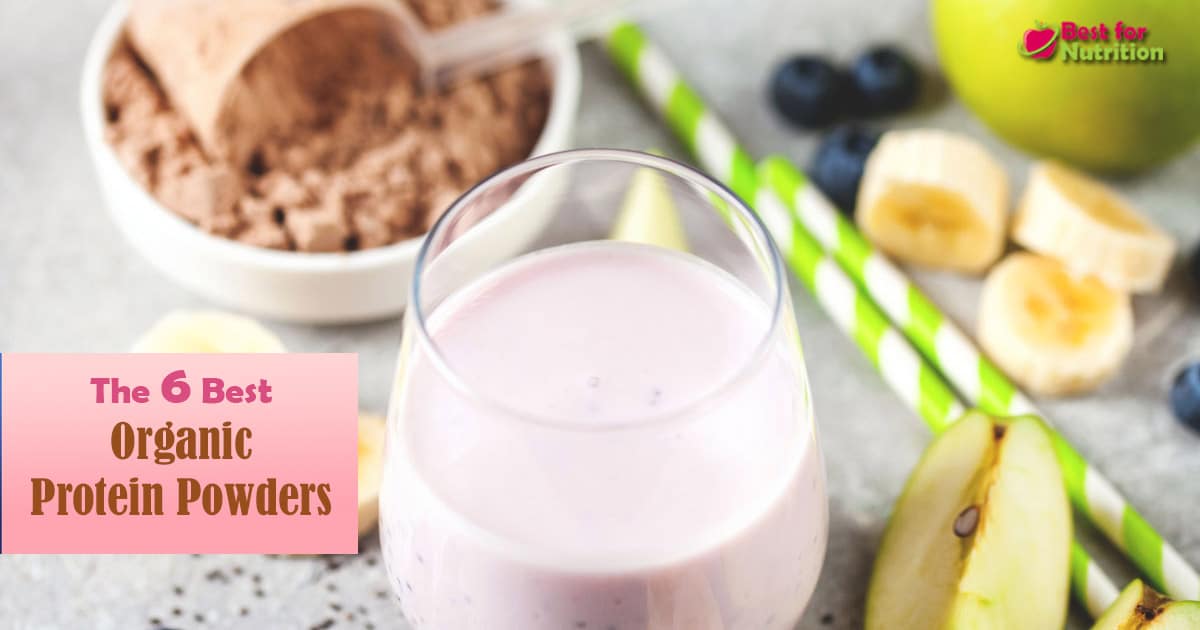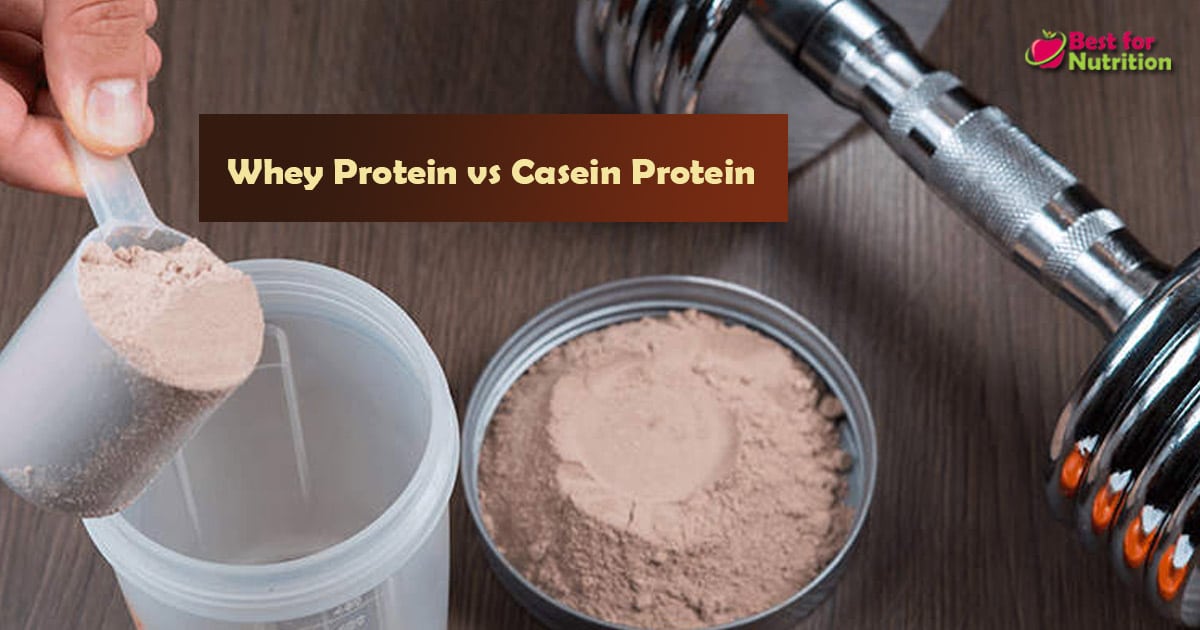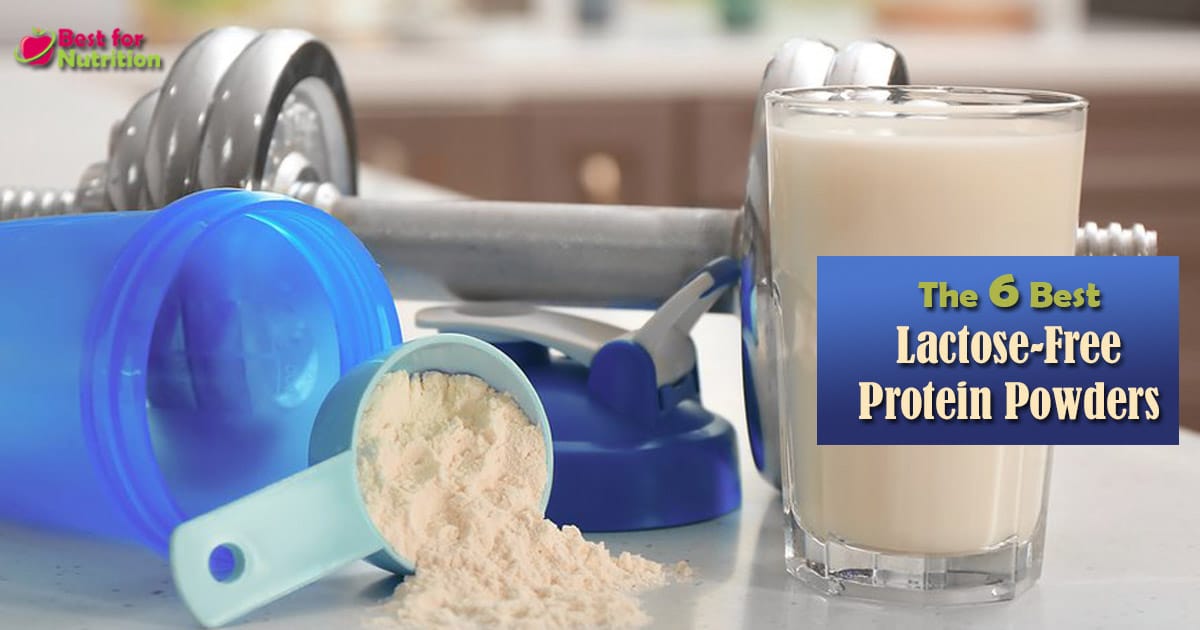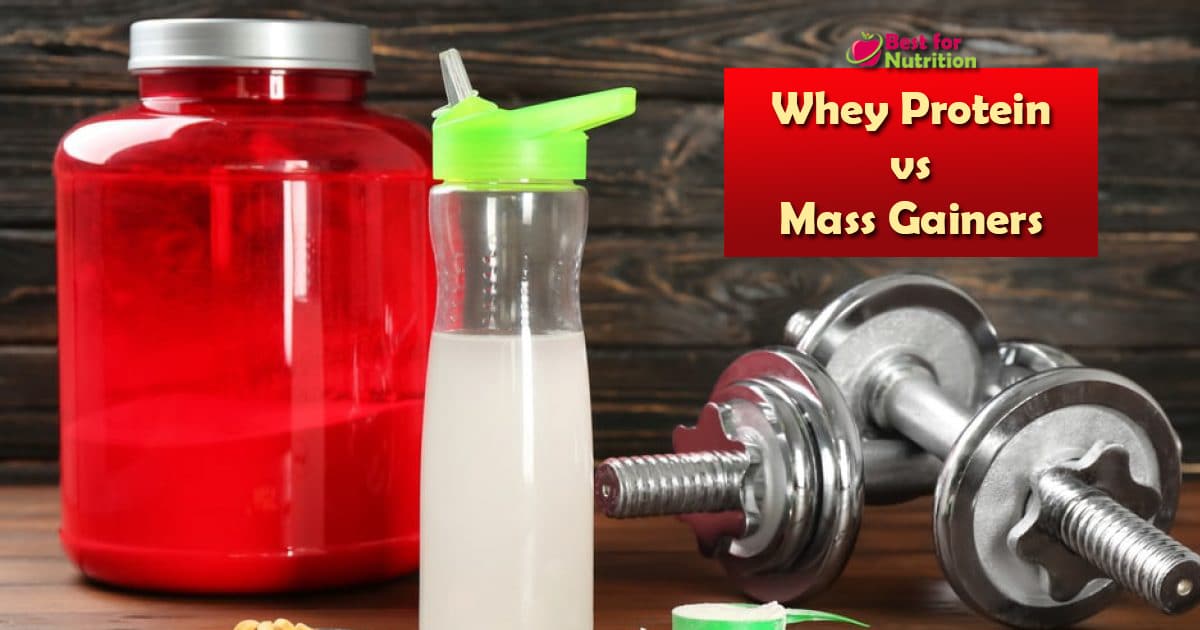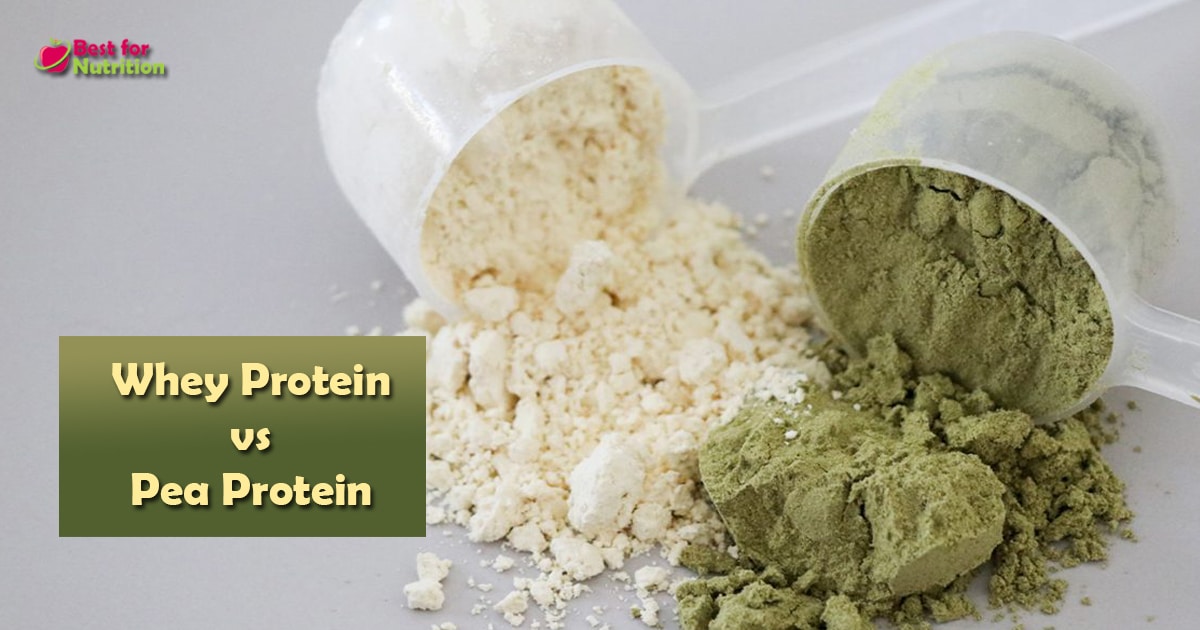Whey protein is one of the most popular and extensively studied dietary supplements. It helps enhance muscle synthesis and optimizes your physical performance.
Whey protein also speeds the recovery process for resistance training and endurance exercises (1).
Apart from being a complete protein, whey also contains certain bioactive compounds such as immunoglobulins, alpha-lactalbumin, beta-lactoglobulin, and many more that have their own beneficial effects (2).
Depending on the processing method, whey can be of different types. Whey isolate and whey concentrate, are the two most common forms (3).
Even though they both originate from whey, their protein concentration is different.
This article will delve into the differences between the two forms and help you understand whether one form is better than the other.
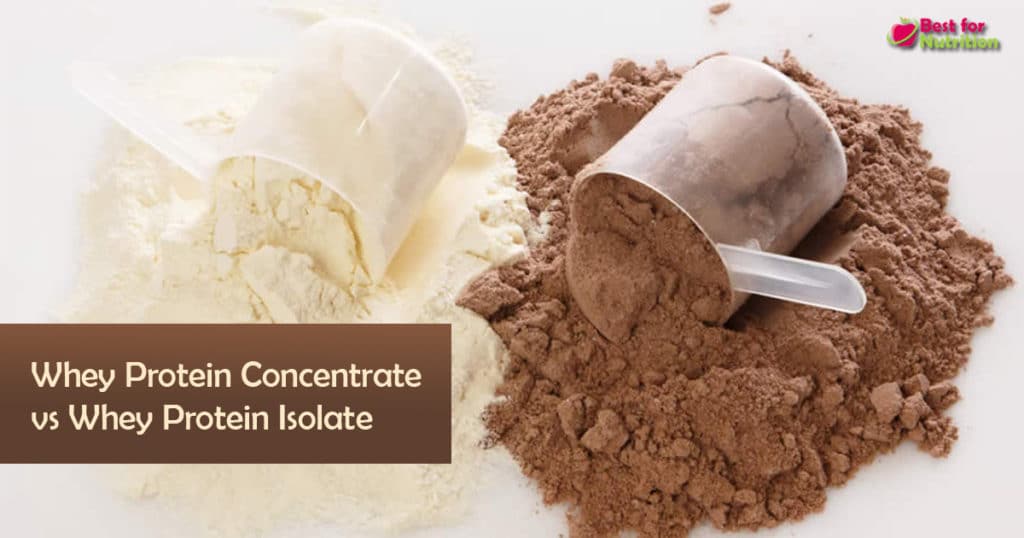
What is Whey Protein?
Whey protein is a popular dairy-based protein. When the milk is curdled, the liquid portion that is left behind is whey, which constitutes around 20 percent of the milk protein (4).
This separated whey is then filtered and dried to make the whey protein powder (5).
Whey was originally a byproduct of the cheese-making industry and was discarded earlier. Later on, when its nutritional benefits were realized, it was turned into a high-quality supplement (6).
Whey is a complete protein as it contains all the nine essential amino acids that our body needs to obtain from outside sources such as food or supplement (7).
Amino acids are the building blocks of protein. There are 20 of them amongst which 9 of them can’t be synthesized by the body. These are called essential amino acids (8).
Whey is also the highest source of BCAAs (branched-chain amino acids), especially leucine that is crucial for muscle building. Whey protein benefits you by enhancing muscle growth, muscle repair, and helps recover faster (9).
Whey protein also helps lose weight yet aids muscle synthesis. A 2008 study, conducted in the USA, found that whey protein supplement increased fat loss sparing the lean muscle (10).
Summary: Whey is a milk protein that has all the essential amino acids that your body needs. They are particularly important in muscle protein synthesis.
What is Whey Protein Concentrate (WPC)?
Whey protein concentrate (WPC) is the most basic and one of the cheapest forms of whey.
Once the whey protein is derived from milk, it is microfiltered, processed, and dehydrated to form the powder (11). The product that is left is a pure, refined, high-protein mix. It contains a high percentage of protein that varies between 30-85 percent (12). The remaining part contains carbohydrates and fat.
Whey protein concentrate is rich in BCAAs (branched-chain amino acids) as well as glutamine and cysteine. It is the right choice for those who want to build muscle, recover from a workout without going off their budget (14).
Whey protein concentrate is the most delicious amongst all other whey supplements. The sugar and fat content influences the taste.
When you are buying whey concentrate, make sure that it is NSF Certified for Sport and third party inspected, which helps guarantee quality.
Summary: Whey protein concentrate has a protein content between 30-85 percent depending on the processing method. 20 percent is fats and carbohydrates. They are easily digestible and regarded as the most economical protein in the market.
What is Whey Protein Isolate (WPI)?
Whey protein isolates are the purest and highly filtered form of whey protein. It goes through a Cross-Micro-Filtration Process that separates the protein from other components of whey making it a more purified form of protein.
The ion-exchange process is also used quite often. In this process, acids, electric energy, and alkalis are used.
Whey protein isolates contain at least 90 percent of protein (15).
Whey protein concentrate usually consists of a low lactose percentage. However, with fine filtration, whey protein isolate has much lower lactose concentration (16).
It also has very less fat, carbohydrate, cholesterol, and calories. As it is filtered intensely, the body can digest and absorb it with ease.
This makes it the perfect option for people with lactose intolerance. It also is a great option for people who want to maintain their muscles whilst losing weight (17).
Whey protein isolates provide you a higher protein-to-calorie ratio and filter the rest of the macronutrients such as carbohydrates, sugar, and fat (18).
Summary: Whey protein isolate consists of 90 percent protein and a negligible amount of lactose and fat. They are easily absorbed in the body and are an ideal option for lactose-intolerant people.
Whey Protein Concentrate vs Whey Protein Isolate: Which one is Better?
Even though the processing step that is used to produce these two types of whey supplement is different, the amino acid profile found in both is virtually identical, since they come from the same protein.
However, they have several differences which are here below:
- Processing: Whey isolate is subject to a more intense filtration process as compared to the whey concentrate, which removes most other things and increases the protein content.
- Protein content: Whey isolate has a very high content of protein, around 90 percent. Whey concentrate in comparison has a protein content between 30-85 percent (19).
- Lactose content: Whey isolate contains very less percent of lactose whereas whey concentrate can have as much as 20 percent lactose. This makes protein isolates more safer and conducive for people who are lactose-intolerant.
- Calorie: Whey protein isolate has very low calories as compared to whey protein isolate.
- Price: Not only nutritional differences but cost differences are also there in these two types. Since whey protein isolate undergoes much more intense processing, it tends to be more expensive than whey concentrate.
- Absorption: Whey protein isolate has better solubility and gets absorbed much faster than whey concentrate which makes it ideal as a post-workout supplement. Fast amino-acid delivery ensures your body gets them right when needed.
- Sugars: Whey protein concentrate still contains some natural sugar that isn’t there in the isolate. Sugar is totally filtered out by several filtration processes, leaving them nearly sugar-free.
- Side-effects: Whey protein concentrate contains lactose and carbohydrates which can potentially cause bloating. However, isolates have very few of those two ingredients, hence do not cause bloating.
Summary: Whey isolate and whey concentrate have different processing methods that render WPI protein-dense, low calorie, low fat, and very less lactose concentration. However, the intense filtration process makes whey isolate costlier than whey concentrate.
Frequently Asked Questions (FAQs)
Is Whey Isolate Much Easier To Digest in Comparison to Whey Concentrate?
Yes, Whey isolates digest much faster than whey concentrates. This ensures a faster rate of amino acid delivery to the muscles right when they need them.
How Fast Does Whey Protein Isolate Digest?
Whey protein is considered to be a fast-acting protein that digests pretty fast. In fact, it is estimated that the absorption rate of whey is 10g per hour. Therefore, a 20g whey will need around 2 hours to digest completely (20).
When Should I Drink Whey Isolate?
The best time to drink your Whey Isolate is right after your workout. If you can do it within 1-hour post-workout, it supports your muscle recovery. However, it is also observed that muscle repair continues for nearly 48 hours after workout therefore a good dosage of about 20-30 g can help sustain the repair.
Why Whey Protein Isolate Is More Expensive Than Whey Protein Concentrate?
Whey Protein Isolate is more expensive than Whey Concentrate because of the extra processing it undergoes to derive a very high concentration of protein (90% or more). This also ensures very low carbohydrate and fat content.
The Final Note
Whey is a milk protein that comes in two common forms: whey isolate and whey concentrate. The main difference between them occurs due to their processing method, which increases their protein percentage.
However, which is better?
The answer to this question is pretty obvious.
Both of them have proven benefits, but whey isolate provides more protein content, less lactose, no fat, minimal carbohydrate, and cholesterol as compared to whey concentrate. It is ideal for anyone who is looking for building muscle mass without the added calories.
Therefore, if you want to lose weight or are lactose intolerant and do not mind shelling extra money from your pocket, whey isolates may be your ultimate choice (21).
